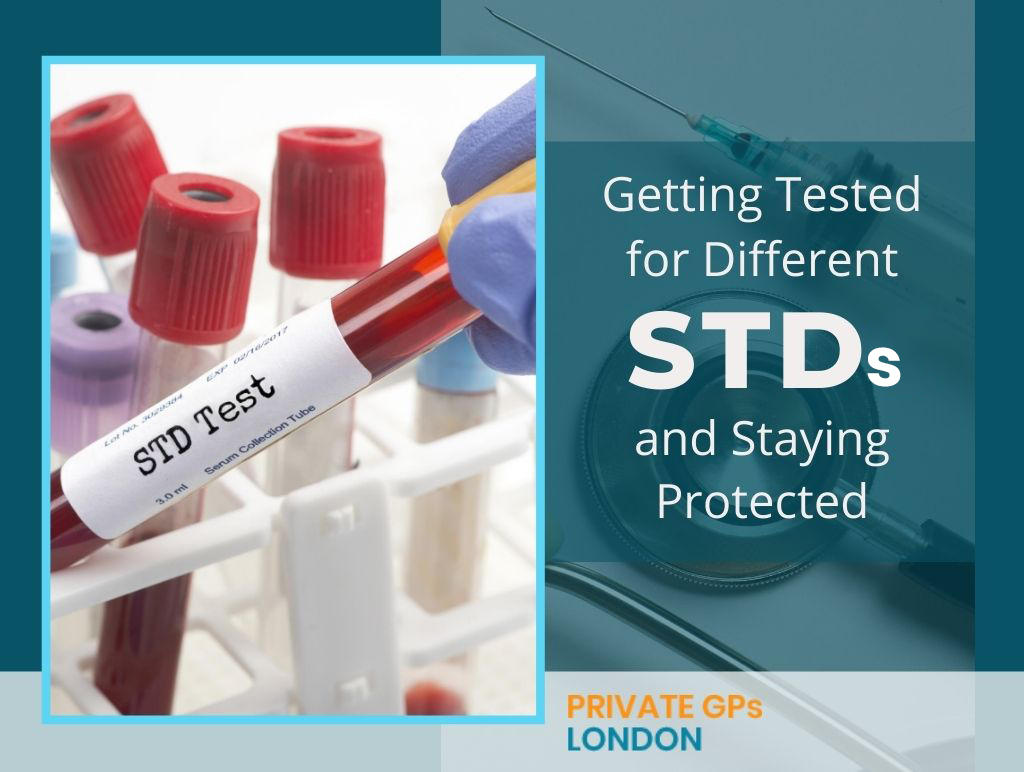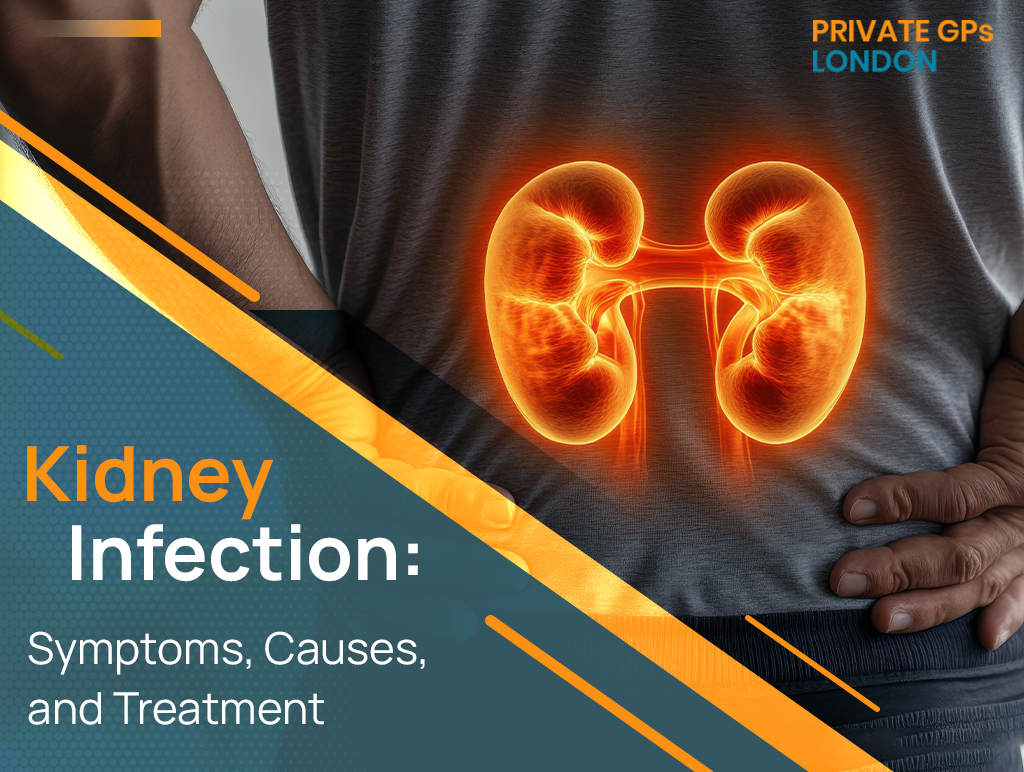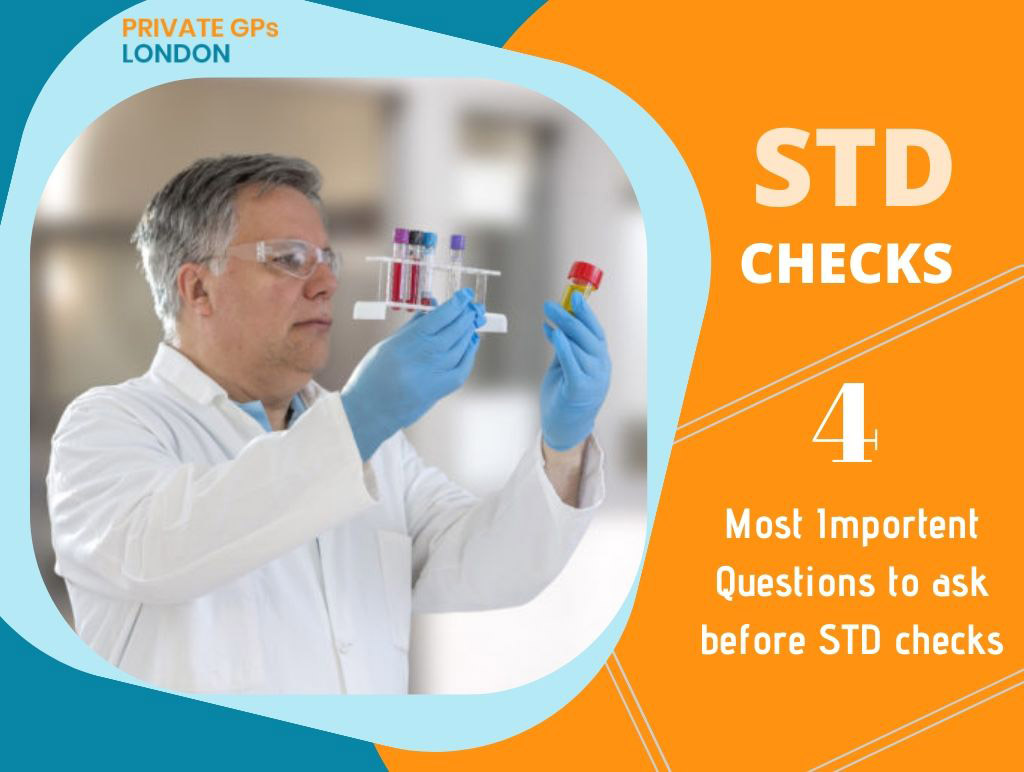Importance of Getting Tested for Different STDs to Stay Protected

Sexually transmitted diseases are among the most common health challenges in the United Kingdom and include different kinds of diseases or infections spread through sexual intercourse. These diseases will pass from one person to another through certain bodily fluids that can be blood, saliva, pre-seminal fluids, semen or vaginal fluids. Proper medication and condom use offer increased protection, however unprotected sex will put you at greater risk of contracting sexually transmitted diseases. Getting tested and performing regular STD screenings from a reputed local Private GP practice in London will help you stay clear of STDs. This blog post will help you understand more about STDs.
About condoms
Although condoms are often used in birth-control, they are also extremely effective in the prevention of sexually transmitted diseases. They act as a barrier for different STDs that can be transmitted through bodily fluids and protect both the person who wears condom and their sexual partner. Some sexually transmitted diseases might spread through skin-to-skin contact even when a condom is being used. This usually takes place when your skin comes in close contact with an infected area on the body of a partner not covered by a condom such as the labia or the scrotum.
Some STDs that can still be contracted even with the use of condoms such as:
- Human papillomavirus (HPV)
- Molluscumcontagiosum
- Pubic lice and crabs
Recommendations for HIV screenings and STD
- Everyone needs to be tested once for HIV between the ages of 13 and 64 years.
- Sexually active women who are below 25 years and have multiple partners should be tested for chlamydia and gonorrhoea yearly.
- Women who are above 25 and have greater risk factors, several sex partners or have a sex partner who already has an STD, should be screened for gonorrhoea and chlamydia every year.
- Bisexual men and sexually active gay men need to be screened for at least once in a year for chlamydia, gonorrhoea and syphilis.
- Bisexual and gay who have multiple partners must be screened often, once every 3 to 6 months.
- To protect mother and baby, all pregnant women should get screened for hepatitis B, syphilis and HIV. Pregnant women who are at risk should be tested for gonorrhoea and chlamydia in the early stages of pregnancy with repeat screening, if needed.
- Anyone who engages in unprotected sex or shares needles need to be tested for HIV once in a year.
When you need to get tested
It is extremely important to have routine STD tests. If you are sexually active and always wear protection while having sex unless you have only one partner only, you will need a test. If you detect any signs or symptoms of sexually transmitted diseases or infections you should have a test. Signs and symptoms of STDs in men and women can vary for different infections. common symptoms are:
- Sores, bumps, warts and blisters around the anus, mouth or genitals
- Red and swollen genitals
- Loose stools
- Weight loss
- Jaundice or yellowing of your skin
- Sudden skin rashes
- Pain at the time of intercourse
- Discharge from the genitals
- Vaginal bleeding outside your normal periods
- Flu-like symptoms such as swollen nymph nodes, fever, fatigue, general aches
- Burning and painful sensation while peeing
Many of these symptoms may also occur due to urinary tract infections, yeast infections, acne and other things that are not STDs. Getting tested is the only way to rule out an STD.
You might not notice any STD symptoms untill the infection has progressed to a later stage. Even though you might be feeling okay, you should consider STD screening if:
-
You have unsafe sex : When you have had unprotected anal, oral or vaginal sex with a new partner. In these situations, you must get tested to stay protected. If you and your partner have been in a mutually monogamous relationship and do not want to use condoms, then you need to get tested beforehand and ensure you are free of infection.
-
You have more than one sexual partner : If you are in an open relationship or not in a mutually monogamous relationship, then have screening every six months. If your partner has hepatitis B, hepatitis C, HIV or other long-term infections, then you must get screened more often.
- You have had a sexually transmitted infection in the past : Those who have had STDs or STIs in the past will probably get an STD again. If you remain sexually active, then you should get tested in about 3 months after you have been treated for your initial STD.
- Your partner already has an STD : If your partner already has an STD, then you need to get tested.
With proper medication, it is possible to treat most of the sexually transmitted diseases. Make sure you follow the advice of your doctor. You might even visit your doctor at the walk-in Private GP Clinic in London to get tested.







